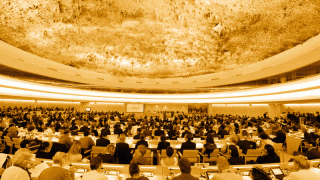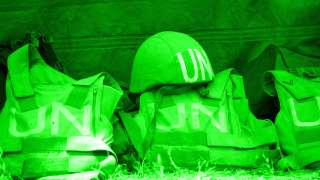Our rationale
The UK has a commendable record of championing gender equality and women’s empowerment at the UN, vocally and through resources. The head of the UN Population fund describes the UK as “longstanding champions of the women we serve”. However, it could do more to lead by example and to increase the effectiveness of its programmes. Adopting a feminist foreign policy would support both these objectives.
Our analysis
The UK has been a strong supporter of women’s rights and empowerment at the United Nations, including through initiatives on modern slavery, girls’ education and preventing sexual violence. UNA-UK was pleased that the Foreign & Commonwealth Office established a Gender Equality Unit in 2017, focussed on these and other issues.
At the Security Council, the UK has championed issues such as women’s participation in mediation and peace processes, and gender training for peacekeepers. It co-sponsored the landmark resolution 1325 on women, peace and security, and was the first permanent member to adopt a National Action Plan (NAP) for implementation. Its most recent NAP was praised by the Gender Action for Peace and Security (GAPS) network, of which UNA-UK is a member.
However, GAPS noted that the NAP lacks dedicated funding – part of a wider lack of committed funding for women, peace and security, for which the UN recommends a target of 15%. GAPS also expressed concern that the NAP is solely focussed on the Government’s work overseas and “does not extend the UK’s women, peace and security commitments to Northern Ireland or to refugees, migrants and trafficked women and girls from fragile and conflict affected states”.
The UK has been a vocal supporter of gender equality at the UN Human Rights Council. However, as the Equality & Human Rights Commission and others have noted, the UK could do more to set a positive example in this area, including by ratifying key international agreements such as the Istanbul Convention on preventing and combating violence against women and domestic violence.
On development, the UK has shown leadership through sustained support for family planning initiatives, including through two international summits in London in 2012 and 2017 and through increased funding to agencies such as the UN Population Fund.
However, assessments by the UK’s aid watchdog have raised questions about the efficacy of UK aid and policy in areas such as girls’ education, noting that “DFID’s approach to value for money risked creating an incentive to focus on the easiest to reach rather than those most in need.
Photo: UNICEF Ethiopia/Members of girls club at Tutis Primary School in Oromia State of Ethiopia 2013.






